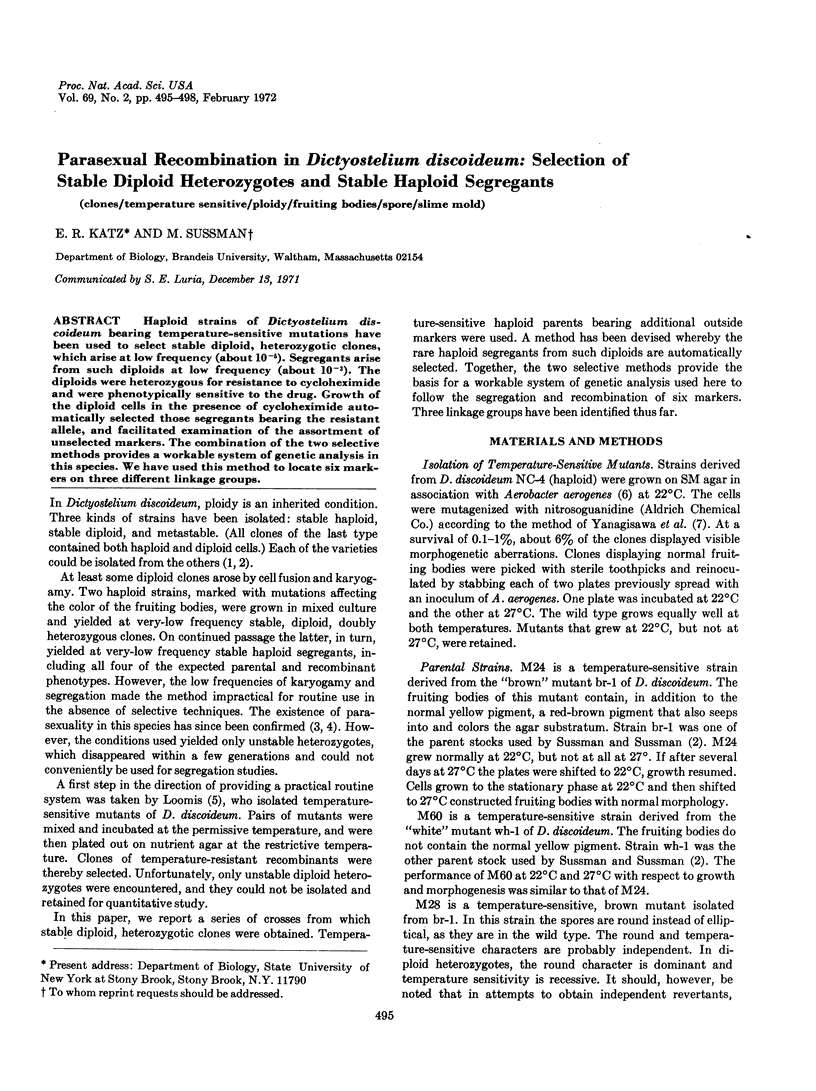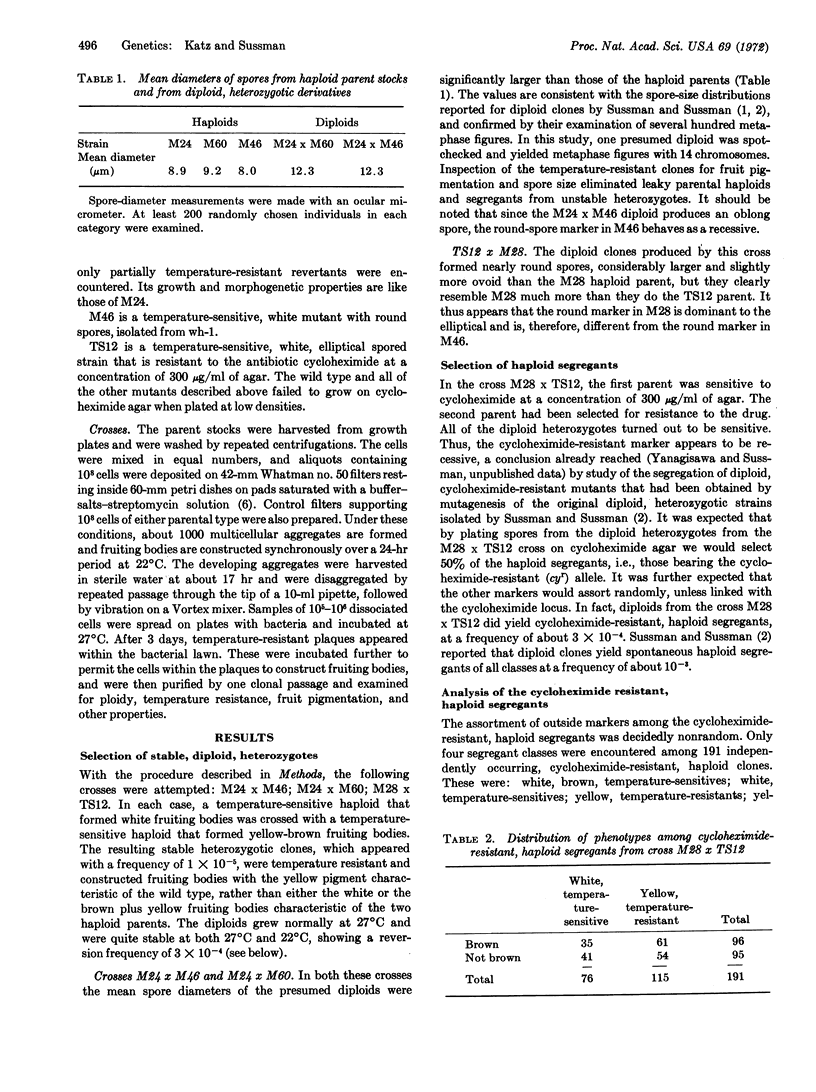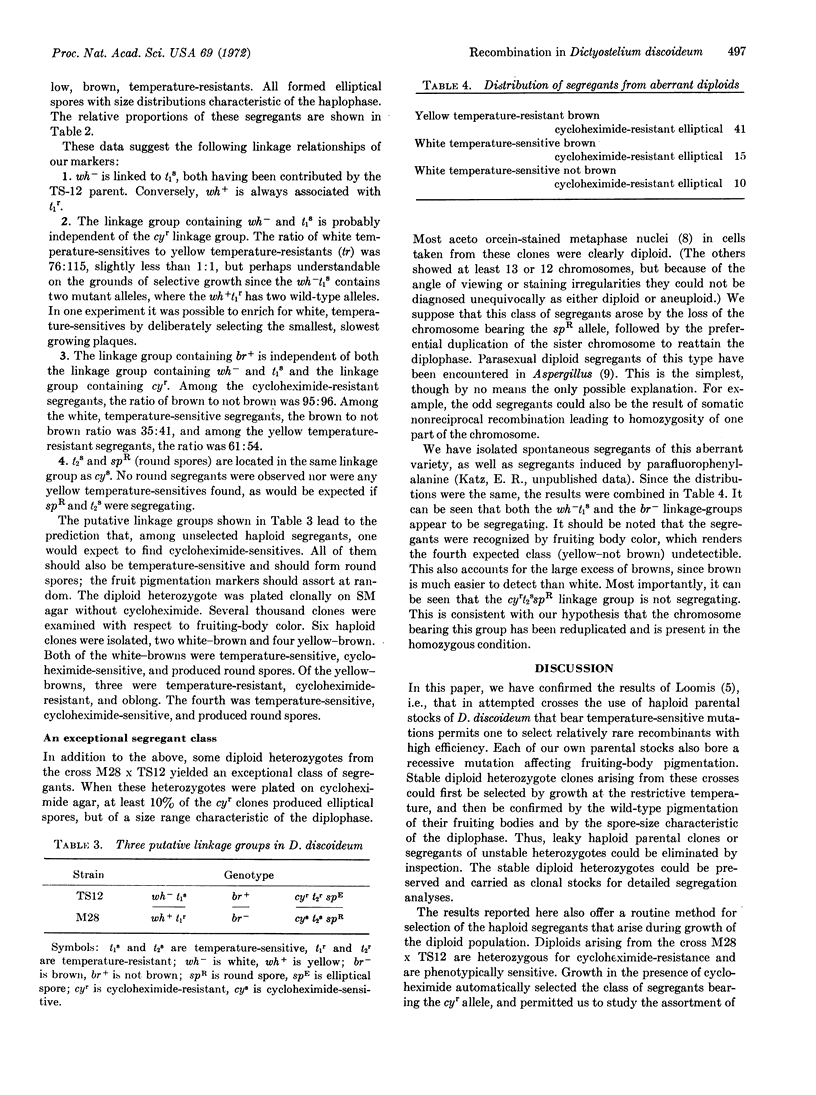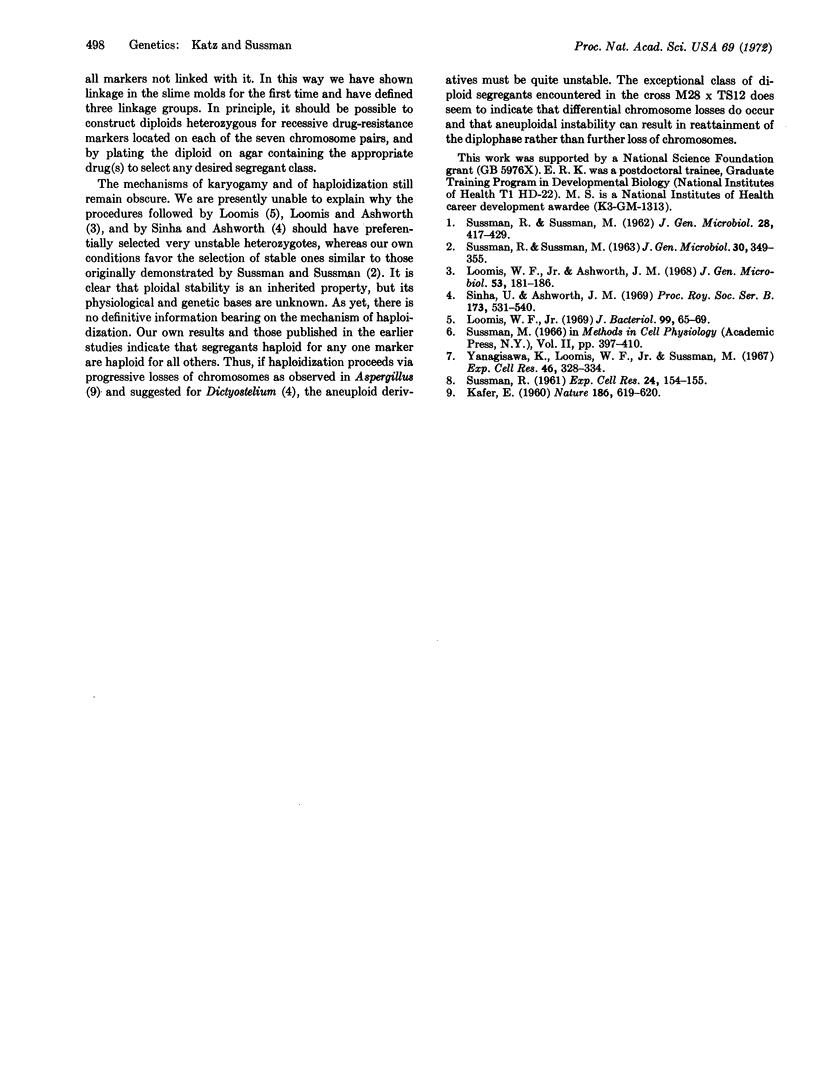Abstract
Haploid strains of Dictyostelium discoideum bearing temperature-sensitive mutations have been used to select stable diploid, heterozygotic clones, which arise at low frequency (about 10-5). Segregants arise from such diploids at low frequency (about 10-3). The diploids were heterozygous for resistance to cycloheximide and were phenotypically sensitive to the drug. Growth of the diploid cells in the presence of cycloheximide automatically selected those segregants bearing the resistant allele, and facilitated examination of the assortment of unselected markers. The combination of the two selective methods provides a workable system of genetic analysis in this species. We have used this method to locate six markers on three different linkage groups.
Keywords: clones, temperature sensitive, ploidy, fruiting bodies, spore, slime mold
Full text
PDF



Selected References
These references are in PubMed. This may not be the complete list of references from this article.
- Loomis W. F., Ashworth J. M. Plaque-size mutants of the cellular slime mould Dictyostelium discoideum. J Gen Microbiol. 1968 Sep;53(2):181–186. doi: 10.1099/00221287-53-2-181. [DOI] [PubMed] [Google Scholar]
- Loomis W. F., Jr Temperature-sensitive mutants of Dictyostelium discoideum. J Bacteriol. 1969 Jul;99(1):65–69. doi: 10.1128/jb.99.1.65-69.1969. [DOI] [PMC free article] [PubMed] [Google Scholar]
- SUSSMAN R. R., SUSSMAN M. Ploidal inheritance in the slime mould Dictyostelium discoideum: haplodization and genetic segregation of diploid strains. J Gen Microbiol. 1963 Mar;30:349–355. doi: 10.1099/00221287-30-3-349. [DOI] [PubMed] [Google Scholar]
- Yanagisawa K., Loomis W. F., Jr, Sussman M. Developmental regulation of the enzyme UDP-galactose polysaccharide transferase. Exp Cell Res. 1967 May;46(2):328–334. doi: 10.1016/0014-4827(67)90070-5. [DOI] [PubMed] [Google Scholar]



